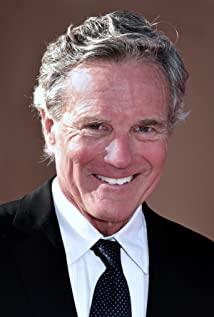There should be no more suitable "life kisses me, and I sing in return" than "The Road to Heaven". During World War II, a group of British and Australian military family members (women, children and a pet dog) stranded in Singapore were exiled by the Japanese army in a concentration camp in Sumatra. Many of them used to be highly educated intellectuals, middle class and even rich and wealthy wives, and young girls who were looking forward to a beautiful love and tomorrow. Now they all fall on this barren island where the sun is scorching all year round and plants cover the sky. . In the extremely difficult living environment, the endless consumption of strong physical labor, needless to say, cigarettes and whisky have become luxuries, there is little food, lack of medical care, and often being yelled at, beaten and even offended by some people. Very strict rules and lost their lives (a Chinese woman in the movie is burned to death for helping a sick old British woman get medicine). Amid such contrasts, fears, homesickness, and a distant wait for the end of the war, people keep dying. The living are also miserable. One of them, an Englishman named Adria, who was proficient in rhythm, began to teach everyone to sing. There are no instruments, no accompaniment, and the vocal layers and harmony are sung by the human voice. When they performed for the first time, a group of people gathered somewhere in the square, and it could be seen that the Japanese army in the distance was just about to come and scold and disperse. She raised the starting hand of the conductor, and the wonderful music immediately flowed in the simple venue. Come on. The Japanese army was stunned, and calmed down to enjoy this beautiful moment like sacred music. The place where sacred music flows, hell seems to have become heaven. The women were in ragged clothes, but their expressions were pious. The lights illuminated the stage next to this little god of death. The executioner stopped the knife in his hand and wrapped his nostalgia at that moment. Wherever there is oppression, there is resistance, and conflicts between the women in the concentration camps and the Japanese army are played out all day long. The resistance under the cruel power is still subject to devastating revenge and control, and most of them are united, determined, just, and wise. Music, and the hope derived from it, binds their fate and makes their resistance more powerful and effective. At least no one is being executed for bizarre reasons anymore. The choir continued, cheering for itself and for the victims of various countries in the concentration camps, like a beacon, giving gentle comfort and tenacious hope until the end of the war two years later. The survivors were sent to Singapore for treatment and returned to their home countries. They have been in hell, they use music as a bridge, and finally return to heaven. Music, let the suffering people stay green hills, let the devil slow down, touch the violent tearing in human nature. Let people hold on, hold on, until heaven . There is also an impressive place in the movie, the brutal Japanese soldier, who took Adria to the depths of the jungle, sang the song of his hometown emotionally, and expressed his apology in a special way. War made him show his bestiality, and music made him show his humanity, even if only for a moment. And that puppy, who was shot by the Japanese army, has been stubbornly alive for a long time. Despite complaints that it ate human food, it survived in the end. The screen debut of Kate the Great Demon, an Australian nurse with a sober self-awareness, a concept of right and wrong, and an unyielding spirit. She goes out of her way to help her people and heal the wounded, which complements Glenn Close (Adria), who tries to heal people's inner wounds. Despite being the first, Kate's performance came naturally. This is a movie that is different from other World War II films, whether it is the plot setting or the angle of excavation of human nature. It has a direct side and a forbearance side to its cruel expression of war. As the medium and banner of hope, music is the gentlest expression of anti-war and the strongest spiritual strength for people in despair.
View more about Paradise Road reviews











